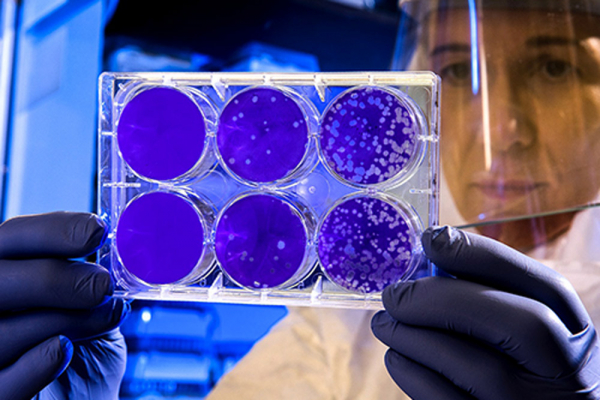Cardiovascular diseases and coronavirus
Alberto García Lledó explains for uah.esnoticia the possible causes of the decline of the decrease in heart attacks during confinement and the need for flu vacination in patients with cardiovascular pathologies.
García Lledó is an Associate Professor at the UAH of the Department of Medicine, Head of Cardiology Service at the Príncipe de Asturias University Hospital (HUPA) and representative of this hospital in the care network for heart attack of the Community of Madrid (Código Infarto Madrid).
Alberto is also a member of the Management Committee of Cardiored1, a healthcare network between different hospitals and levels of care that this year aims to achieve a high proportion of health professionals vaccinated against influenza to prevent them from transmitting it to their patients.
- Heart attacks have decreased by 40% during lockdown, what do you think is due?
The number of episodes recorded in heart attack care networks decreased very significantly during the first epidemic peak of coronavirus, both in Spain and in other countries. This is a paradoxical fact, because we know that other respiratory infections, particularly the flu, cause an increased risk of coronary events.
There are two explanations for this situation. On the one hand, it was a very high mortality period that affected and affects mainly the elderly, men, people with obesity and previous diseases, including cardiovascular diseases. All those people who died in large numbers from COVID-19 could no longer suffer a heart attack, i.e. died of another cause in advance. This is called competitive risks. The one that kills first reduces the probability of the second one happening. Another explanation is the delay in care, both because of the patient's fear of going to the hospital and for saturation of the system. Some cases may have died without assistance, or suffered the heart attack without being diagnosed. In favor of this possibility, the fact is that in Spain it has been observed that, despite the reduction in the number of heart attacks attended, those who have occurred have had twice the mortality rate, with longer care times.
- What´s the CardioRed1 clinical network?
CardioRed1 is a clinical network aimed at the integral care of cardiovascular pathology in a population of approximately one million people in the Community of Madrid. We integrate the cardiology, heart surgery and vascular surgery services of the Hospitals Clínico San Carlos de Madrid, Leganés, Fuenlabrada and Príncipe de Asturias de Alcalá, the health centers of our areas and the SUMMA emergency service.
We are creating new forms of organization to integrate care, from prevention to more complex interventions. We work for concrete projects, with measurable objectives, through interventions based on scientific evidence. These actions range from creating a circuit of quick assistance to acute aortic syndromes, to reduce their mortality (Aorta Code, the first established in Spain), to generating ways of working that improve patient safety and comfort. These projects include getting Cardiored1 professionals to receive the flu vaccine, and systematically prescribing it to our patients.
- Do you think they achieved the goal that has been set for vaccination of health-care workers?
I think so. Coronavirus has reminded everyone the need and usefulness of vaccines, including flu. We see high sensitivity and we need to take advantage of it.
 |
| Alberto García Lledó |
As the saying goes 'The tailor´s wife is the worst clad', why other years only 35% of health workers were vaccinated against the flu?
I think it is due to the perception that the flu, in healthy people, has a low risk of complications. We health care providers are usually outside the risk groups to which we recommend the vaccine, those people who because of their age or previous illness are at high risk of complications.
However, by acting in this way we forget that the goal of receiving the vaccine is not so much to prevent complications, but to prevent us from being vectors of the spread of the disease, either among our patients or in our direct environment. The low rate of vaccination in health care has made Cardiored1 undertake this vaccination campaign, and to encourage our people even more, for every professional vaccinated we will donate a vaccine to UNICEF: one by one.
The low rate of vaccination in health care has made Cardiored1 undertake this vaccination campaign, and to encourage our people even more, for every professional vaccinated we will donate a vaccine to UNICEF: one by one.
- What can be the consequences of a flu in a population prone to heart attacks?
The flu causes an increase in the number of hear attacks, and makes heart attacks that occur during periods of flu more serious. Fortunately, the flu vaccine reduces that risk, and is indicated in all people with a history of heart disease or at increased risk of developing it.
-This year we expect a further increase in flu vaccination, do you think it will have a positive impact on cardiovascular health?
As I said before, the flu vaccine reduces the risk of heart attack, but also reduces the risk of relapse and death from heart failure. The recommendation to vaccinate more than 75% of the population at risk has been made by scientific societies for years. Approaching this goal will prevent a considerable number of income and deaths from cardiovascular causes.
Publicado en: Inglés
